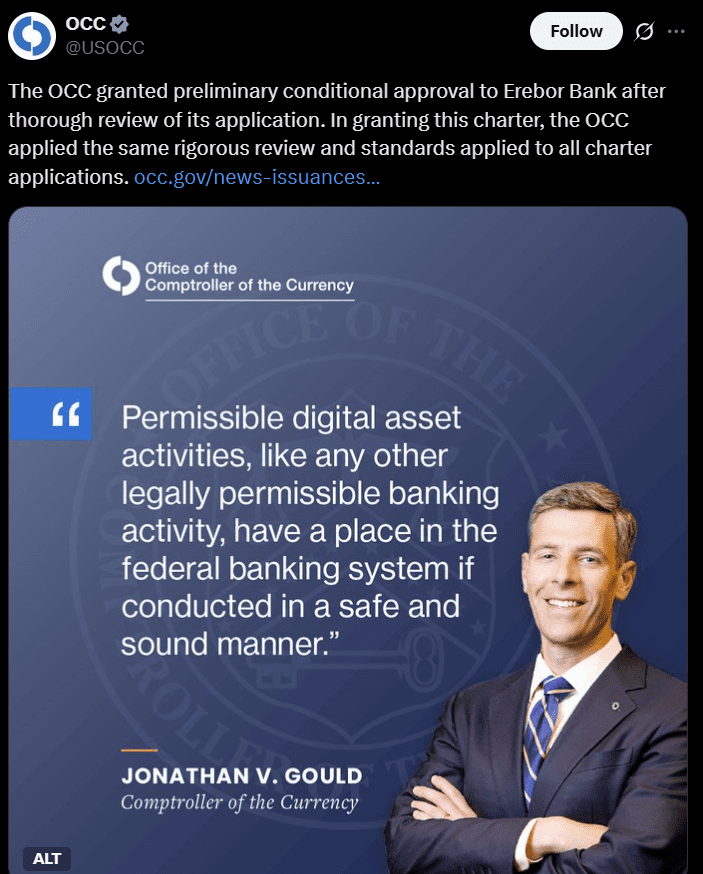Erebor, Peter Thiel’s company, has received preliminary banking approval from the OCC to launch in the U.S., focusing on funding crypto and AI startups after the regional bank crisis.
Peter Thiel’s Erebor Gets U.S. Banking License
Erebor, a financial company backed by billionaire Peter Thiel, has received a preliminary banking license in the U.S., the Financial Times reports.

According to the Office of the Comptroller of the Currency (OCC), the company will be able to start operations after passing additional compliance and security reviews, which could take several months.
OCC Commissioner Jonathan W. Gould confirmed the approval, noting that “permissible transactions in digital assets occur in the federal banking system if they are conducted safely and responsibly.”
Betting on the innovation economy
Erebor is positioning itself as a bank for the innovation economy, providing loans to companies in the fields of cryptocurrencies, artificial intelligence and high technology.
“We want to be a stable, low-risk bank that does normal banking without excessive risks,” an Erebor representative told the FT.
The company has previously been reported to be aiming to become a key source of funding for startups that have faced a lack of access to capital after tighter regulation of the financial sector.
Context: After the 2023 bank collapse
Erebor’s growth comes against a backdrop of turbulence in the US banking sector.
In March 2023, Silicon Valley Bank, Silvergate Bank, Signature Bank and First Republic Bank all went bankrupt or were taken over, causing a liquidity crisis for technology companies.
At the same time, rising interest rates have made access to finance more difficult, creating demand for new banking models for innovative firms.
Regulatory Shifts and Competition with Crypto Companies
The OCC’s decision comes amid a tightening of crypto regulation in the US. President Donald Trump recently signed the Stablecoins Act into law, and Congress is considering new legislation to structure the crypto market and ban CBDCs.
Amid this backdrop, major crypto companies are also seeking banking or trust licenses:
- Coinbase has applied for a national trust charter;
- Circle (issuer of USDC) is seeking to establish a national trust bank;
- Ripple Labs has also applied for a similar license.
However, banking associations are calling on the OCC to suspend issuing licenses to crypto projects, fearing “regulatory gaps and risks to the system.”
Likely to Continue in Court
Custodia Bank founder Caitlin Long said the question of whether trust charters can act as full-fledged banking licenses will likely be decided in court.
She stressed that the issue is not just about crypto banks, but also about access to Federal Reserve accounts without having to maintain full capital reserves, as traditional banks do.
Related: Peter Thiel-Backed Crypto Exchange ‘Bullish’ Eyes NYSE Debut: A $4.2 Billion Valuation Play









